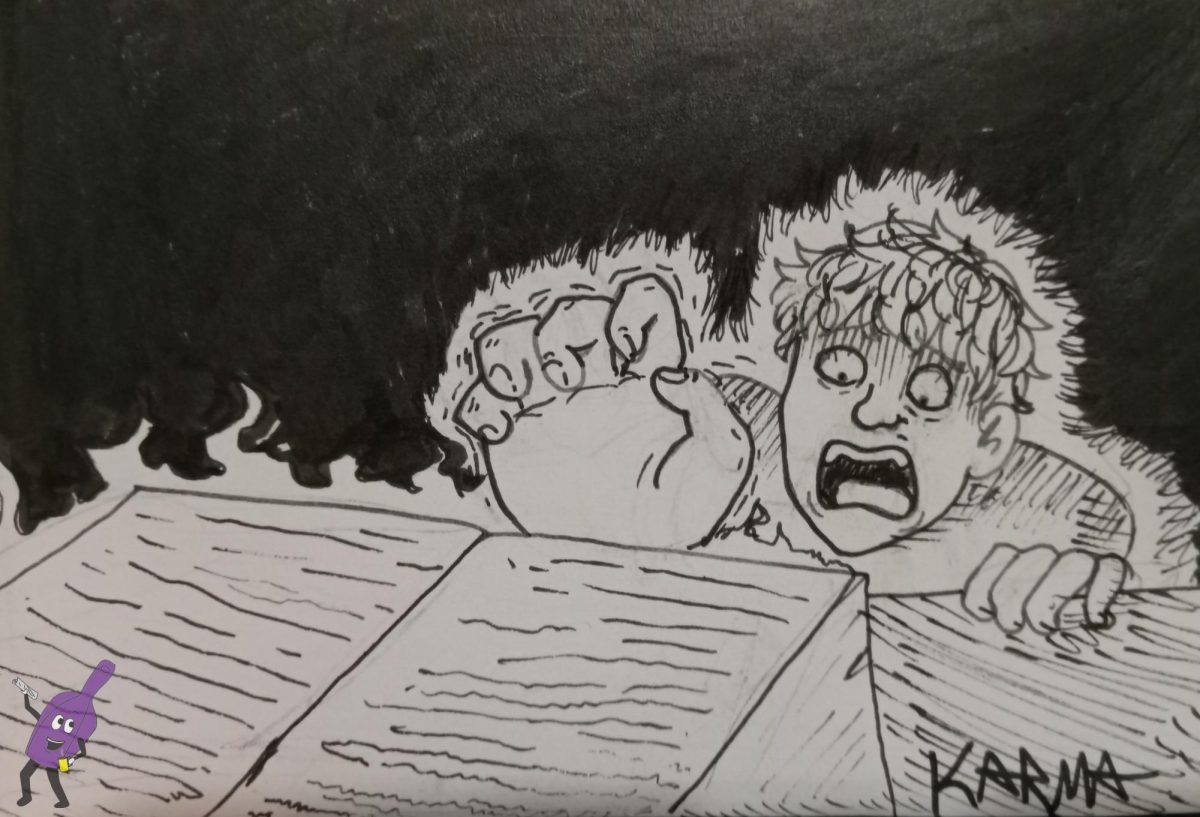It is not uncommon to hear about how society has stopped reading or does so less now that technology has advanced. Frequent argument is that many have trouble reading as they just cannot seem to find something that interests them enough to follow through with.
What most do not realize is that this problem is something that all book readers (experienced and not) have encountered as well. Reading slumps are known as the source of months of suffering and a total lack of interest in literature.
Reading slumps can be defined as a “period of disinterest in books” and reading as a whole. These lulls approach some only days at a time while others can struggle with them for years.
These can be caused by sudden changes in time or an intake in stress levels due to school or work. It is also common to hear that a person can experience a kind of guilt if they were to sit down to attempt reading as it is a “waste of time.”
The ruthless cycle is difficult to break and sadly, if it goes on long enough, a person can go years or even their entire lifetime without reading, as it has become impossible to start up the habit again.
Despite how daunting breaking the cycle may seem, there are many tactics that the bookworm community has found to be the perfect cure to this disastrous disease. The problem at its core, is being able to find a book that you find genuinely interesting.
A good place to start when looking for something to become invested in is the wide variety of fast-paced books one can choose from. Fast-paced books are pieces of literature that will often include lots of dialogue, a simple plot, and have little to no focus on any sort of sub plot or characters.
Though fast-paced books may sound simple and boring, the combination of elements make these specific stories easy to understand, and if nothing else, can work to encourage the reader to expand upon what they found in the original story.
Another way to kickstart the habit is choosing a shorter book than one might usually consider. These will typically be somewhere under 330 pages. Shorter books are often seen as less intimidating as they have a lower page count which can make it seem like less of a challenge to finish than the pressure that a longer book often has.
As mentioned earlier, a common reason one may stop reading is due to lack of time in their daily schedule. A solution to this problem is audio books.
The biggest benefit to this style of reading is that it can be done while engaging in other tasks and can act as a substitution for music or television. One could also listen to the audio book while reading the physical copy if they so desired.
This works well because it eliminates the stress of time constraints or having to spend time going to a store or library and spending more time picking something to get.
They also provide more privacy as no one can read over your shoulder and the problem of public spaces can easily be compensated by earbuds or headphones.
Re-reading a book you have a positive view of is also a common way to cope. These could be anything from an entire series to a stand alone or something that you may recall from early childhood.
It is no use trying to read something if you feel as though you are going to have a bad time doing it. However, if there is a book you have already read and know that you have enjoyed then re-reading that could improve your view on other books and reading as a whole.
Even if it was only one chapter, finding something you enjoy will help tremendously.
The best thing one can do to get out of a reading slump is just to find what suits them. Some people can only read stand-alone books while others read nothing but series.
One may only want to read books about romance while another can only find interest in horror. Some may also consider life to be too busy to sit down and read so audio books may be more of their speed.
Catering to desires and daily routine is truly the best way to fall in love with reading again, because after all, authors write a book in hopes to make someone happy. Why can’t it be you?
Recommendations (with ratings)
(Please consider trigger warning and read summary if there are any concerns about content)
Fast – Paced
- This Is Where It Ends – Marieke Nijkamp (Trigger warning: violence 15+)
- Twisted – Laurie Halse Anderson (Trigger warning: suicidal thoughts 15+)
- The Outsiders – S.E. Hinton (fiction 13+)
- The Love Hypothesis – Ali Hazelwood (romance 18+)
- Things We Hide From the Light – Lucy Score (romance sequel to Things we never got over 18+)
- It’s Kind of a Funny Story – Ned Vizzini (Trigger warning: suicidal thoughts 15+)
- They Both Die at the End – Adam Silvera (fiction 13+)
Short books (under 320 pages)
- The Twelve-Fingered Boy – John Hornor Jacobs (science fiction 13+)
- Stargirl – Jerry Spinelli (slight romance 13+)
- Scrawl – Mark Shulman (fiction 13+)
- The Reader – Bernhard Schlink (historical fiction Trigger warning: pedophilic actions 15+)
- The Little Prince – Antoine de Saint-Exupery (fantasy, friendship 12+)
Intro to a new genre
- Love and Gelato – Jenna Evans Welch (soft romance 12+)
- Bad Behavior – Many authors (horror 14+)
- Alan Wake – Rick Burroughs (horror 13+)
- Song of Achilles – Madeline miller (historical/romance 15+)
- Where the Crawdads Sing – Delia Owens (historical 15+)
- The House in the Cerulean Sea – TJ Klune (fantasy/science fiction found family 13+)
- The Book Thief – Markus Zusak (historical fiction 15+)
Getting into series
- The Land of Stories – Chris Colfer (fantasy series of 5 books 13+)
- Daughter of the Pirate King – Tricia Levenseller (fantasy series of 2 16+)
- The City of Ember – Jeanne DuPrau (science fiction series of 3 12+)
Comics
- Hyperbole and a Half – Allie Brosh (14+)
- Solutions and other Problems – Allie Brosh (sequel to Hyperbole and a Half 14+)
- Real Friends – Shannon Hale (books 1-3 12+)
- Evil Emperor Penguin – Laura Ellen Anderson (9+)
- Hooky – Miriam Bonastre Tur (fantasy/magic 10+)





